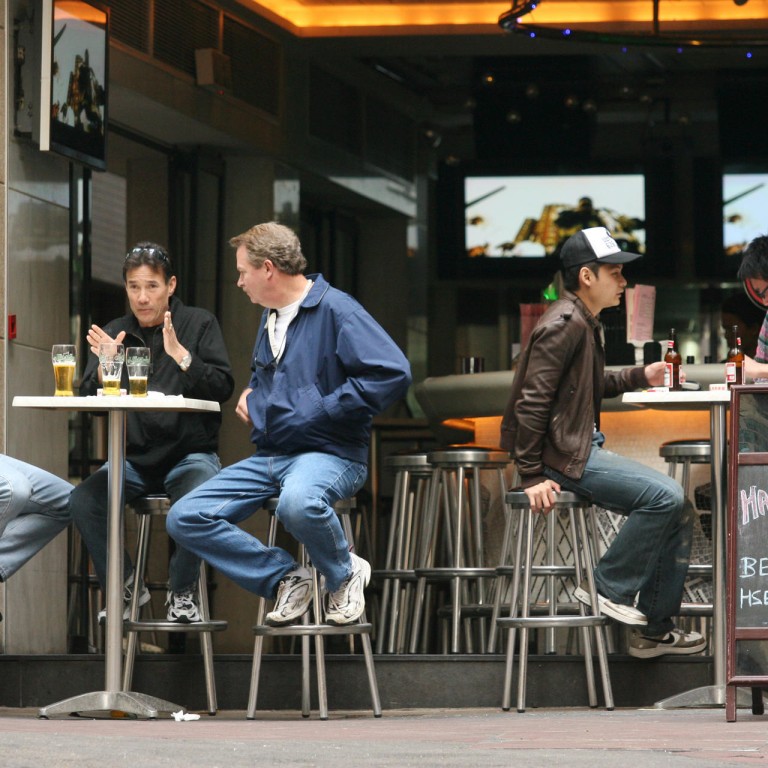
Lan Kwai Fong bar owners step up campaign against 7-Eleven
We recently wrote about the issue of 7-Elevens being able to serve alcohol without requiring an off-licence. We also noted that the number of 7-Elevens in and around Lan Kwai Fong had swelled over the past year to the dismay of bar owners which viewed them as unfair competition, since without having to carry the same overheads they are able to sell their liquor a lot more cheaply.
As a result, Club 7-Elevens, as they describe themselves, have flourished. Our piece prompted the Lan Kwai Fong Association to poll its 200 or so members seeking their views on 7-Eleven's operations and how to resolve what they see as a big problem.
Not being licensed means 7-Elevens don't have to go to the Liquor Licensing Board where the public can lodge complaints about the issuing of licences on the basis of noise and other issues. Hong Kong, almost alone among advanced economies, does not regulate the sale of alcohol to minors from convenience stores or supermarkets.
The licensing arrangements in Singapore make for an interesting comparison. It passed a revision of its liquor licensing laws in 2001 which required the sale of liquor both on and off the premises to be licensed. The law empowers the Liquor Licensing Board to suspend or remove the licences of convenience stores and supermarkets which breach the laws by supplying liquor, for example, to minors or drunk and disorderly persons. None of this exists in Hong Kong.
The Jardines-controlled Dairy Farm, which operates 7-Elevens in Hong Kong, also operates 560 7-Elevens in Singapore, which sell liquor for consumption off the premises with a valid licence granted by the Singapore Liquor Licensing Board. Following the riots in "Little India" in December 2013, the Singapore government recently tabled a bill to prohibit liquor sales by convenience stores and supermarkets between 10.30pm and 7am.
The biggest convenience stores, including 7-Eleven, Cold Storage and NTUC FairPrice, recently put out a joint statement welcoming the government's move. According to Channel News Asia, the statement said the group saw merit in "an island-wide time-based restriction on liquor consumption in public places as they share the same concerns as the government about public disorder, safety and anti-social behaviour that could arise from people gathering and consuming liquor in public places".
The group has also proposed a voluntary programme for retailers that aims to create "a responsible culture" for the sale of liquor. This includes training and certifying all store managers on the responsible sale of alcohol within the first 12 months of the law coming into effect, working with the police to identify problem hot spots, prominently display notices relating to new restrictions and penalties, and leveraging in-store CCTV to identify and to deter problem consumers.
Hong Kong doesn't have to introduce cumbersome legislation to require retail premises selling liquor to have an off-licence. Under the dutiable commodities ordinance, the chief executive in council is empowered to require retail premises to have an off-licence before selling liquor to the public. For reasons that are unclear, the government has so far been reluctant to go down this route.
It may feel differently once the influential Allan Zeman starts bending its ear about this. His 27-storey New California Tower in Lan Kwai Fong is in the process of opening a facility "dedicated to restaurants, bars, clubs, lifestyle, fitness and creative commerce". This is next to a 7-Eleven and it's thought Zeman is not altogether happy about the crowd that gathers there at night.

